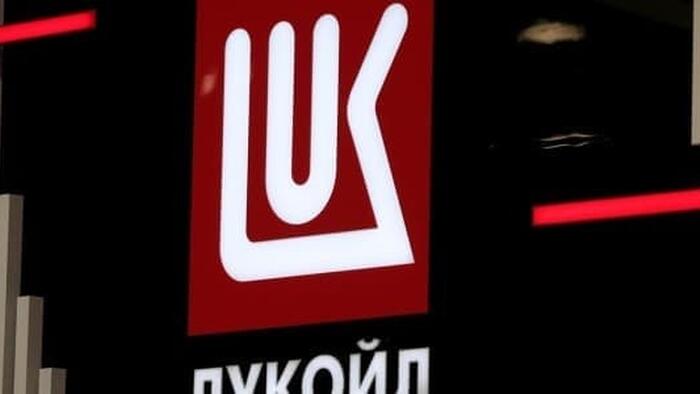Authored by Cyril Widdershoven via OilPrice.com,
-
Bulgaria’s Lukoil Burgas refinery continues to process Russian oil via shadow fleet transfers.
-
EU sanctions have expanded to target 80 Russian vessels, but Bulgaria and other nations like Romania and Turkey remain involved in sanction-evasion schemes.
-
Concerns over Russian influence persist as Hungary’s MOL moves to acquire Lukoil’s Bulgarian assets.
Even though the EU sanctions Russian oil, Bulgaria still allows crude to be processed at the Lukoil Burgas refinery. An investigation by Ukrainian journalist Mykhailo Tkach, working for the Ukrainska Pravda, shows that Lukoil’s Bulgarian Burgas refinery is still processing Russian crude. The volumes are being transported by Russia’s shadow fleet and transshipped offshore near the coast of Bulgaria. Tkach has made videos of the ship-to-ship (STS) transfers just opposite the port of Rosenets, the main port for crude oil deliveries to the Burgas refinery. The Ukrainian reporter shows that the Liberian-registered tanker Lipari, arriving on November 24 from Novorossiysk, Russia, docked near the Rosenets port. Via an STS, the Maltese-registered tanker Stames took delivery of crude oil at sea.
This STS appears to have delivered Russian naphtha, for which the EU in 2022 granted Bulgaria an exemption to import until the end of 2024. Reports, such as those from Global Witness, show Bulgaria imported much more Russian naphtha than necessary in 2023. Global Witness also stated that the Burgas refinery processed 5 million tons of Russian naphtha in the first ten months of 2023, contributing around €1 billion to Russian government coffers. In response, the Bulgarian government announced in 2023 that it plans to decrease Russian naphtha imports by 80%, stopping all imports by 2024. However, Tkach’s video indicates that the Burgas refinery is still processing Russian oil.
To limit the ability of the Russian dark fleet to bring crude and products to European markets, the EU imposed additional sanctions on December 1, 2024, targeting around 50 additional Russian oil tankers, bringing the total sanctioned dark fleet to approximately 80 vessels. Tkach’s findings suggest that the Bulgarian government remains complicit in Russian STS operations linked to Burgas refinery activities. Analysts have proposed that the Russian naphtha could be rebranded as KEBKO (Kazakh Export Blend Crude Oil) to bypass restrictions. Ukrainian and Bulgarian media claim that Bulgarian government officials are likely aware of the multimillion-dollar deals involved. Reports also suggest that the Russian-Bulgarian oil connection is part of Moscow’s disinformation and influence strategy.
As evidence of Moscow’s sway, Bulgaria’s government, led by Prime Minister Grachev, has declined to sign a bilateral security agreement with Ukraine, creating a rift with 25 EU member states that have signed similar agreements. Grachev’s government appears to be following Hungary’s Viktor Orbán in aligning with Russian interests.
Interestingly, Lukoil’s Bulgarian assets, including the Burgas refinery—the largest in the Balkans—are up for sale. Hungarian oil and gas company MOL is reportedly in the process of acquiring the assets. Hungarian President Orbán has been pushing for the deal, as evidenced by his visits to Bulgarian officials, including President Radev. Analysts warn that Russian financing could be involved, as MOL’s financial capacity is limited. Orbán’s involvement should raise concerns for European authorities, who might consider blocking the deal if Russian connections are proven. Hungarian ownership of Lukoil’s assets could further entrench Moscow’s influence in the Balkans.
Another issue complicates the sale of Lukoil’s assets. The company holds a dominant position in Bulgaria’s fuel market but has not paid profit taxes. Bulgarian sources estimate that Lukoil owes around BGN 500 million ($265 million) in unpaid taxes.
Bulgaria is not the only European country importing large volumes of Russian oil and products. Reports show that Romania has also violated EU sanctions. In November, the Panama-registered tanker Sredina arrived in Romanian waters near the port of Constanta and performed an STS transfer with another Panama-registered tanker, Melahat. According to Marine Tracking, Melahat later docked with the Russian-registered vessel VF Tanker 3, which had come directly from Novorossiysk, Russia. Other vessels, such as the Altai, have also transported Russian crude to Romanian ports like Midia.
Turkey is another route for Russian crude and products into Europe. The EU’s Anti-Fraud Office is investigating the Turkish route, where vessels from Russia pass through ports without refining capabilities. Marine Traffic has documented other vessels coming from Novorossiysk, further establishing Turkey’s role in the ongoing trade of Russian oil to European markets.
Loading…


